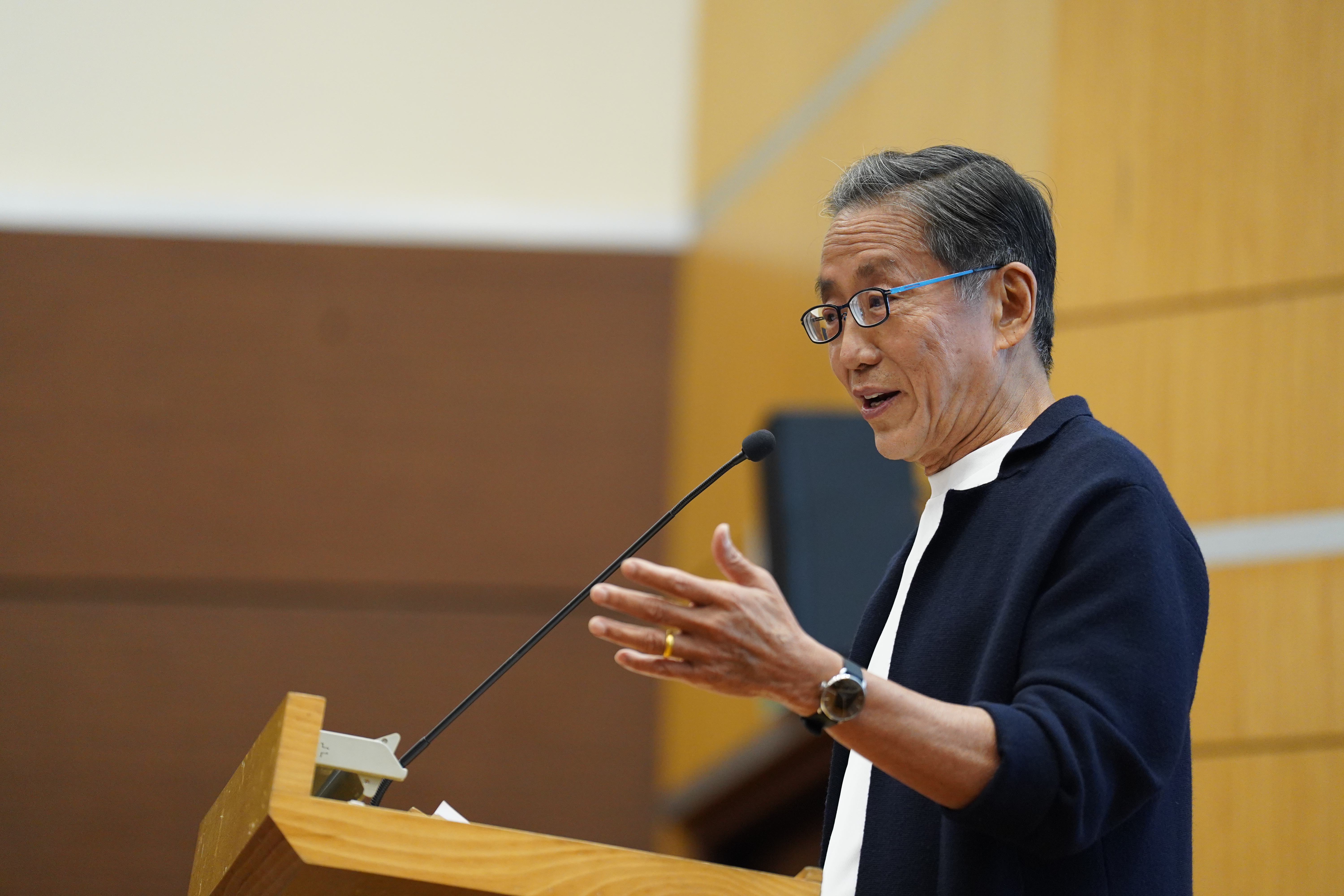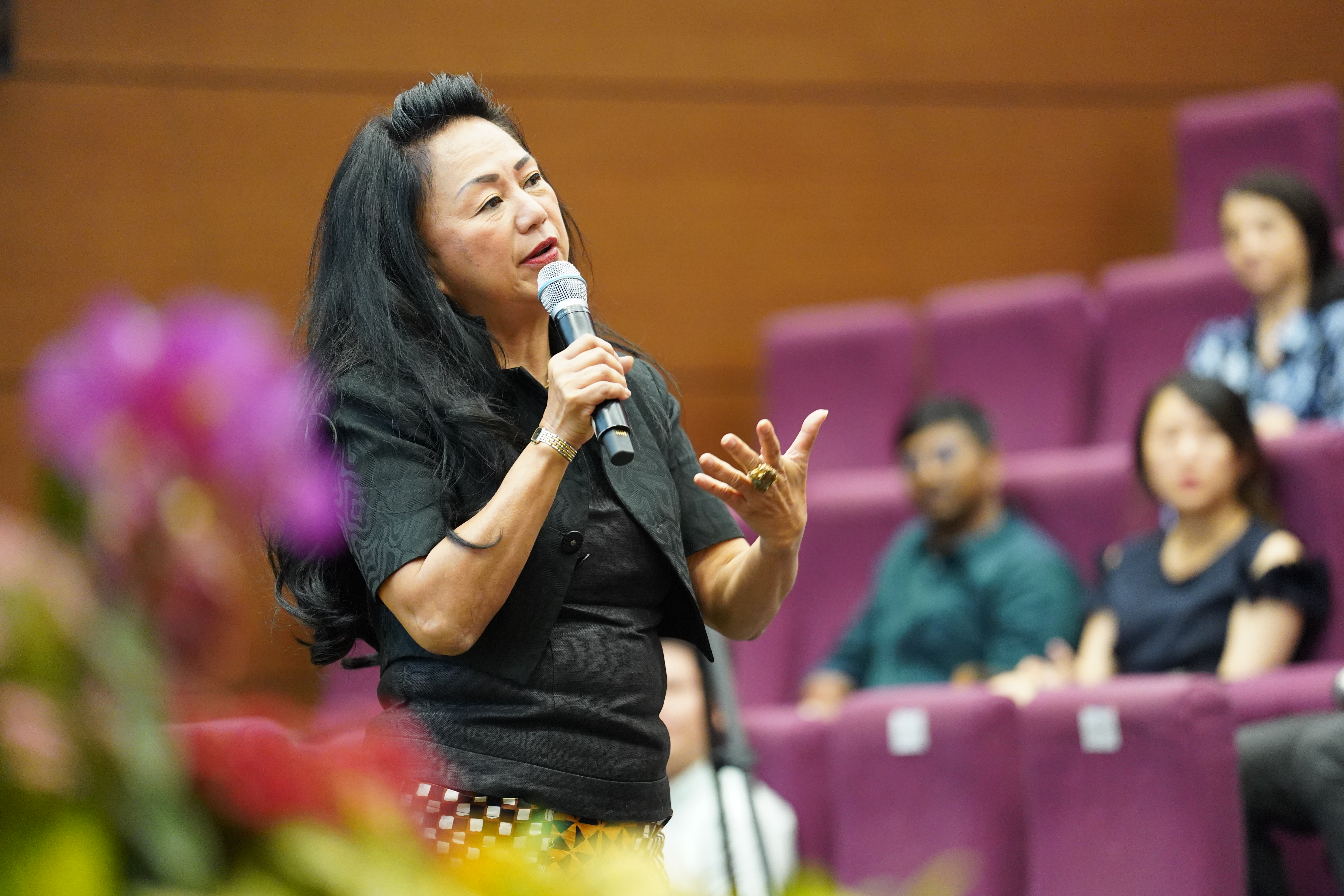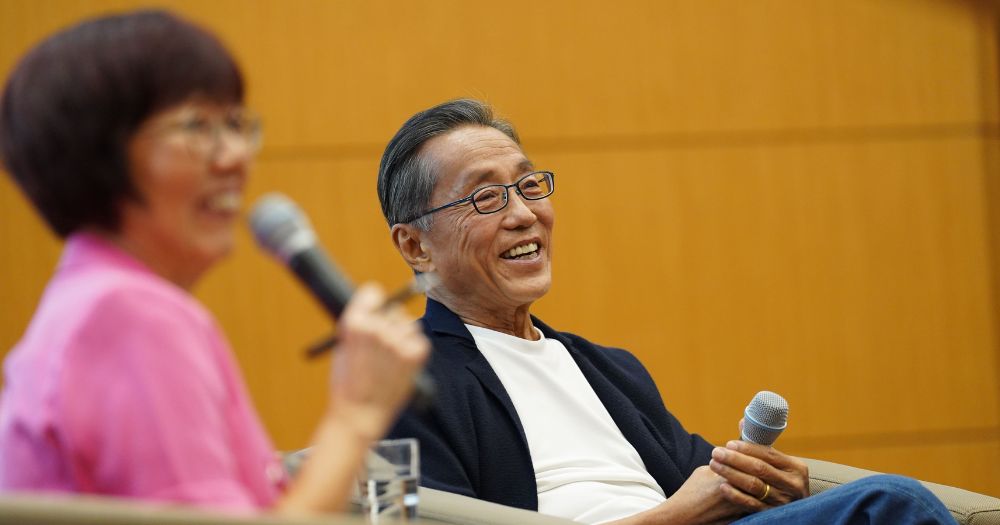Singapore is in danger of becoming mediocre due to "complacency" and "hubris", said Ho Kwon Ping, founder and executive chairman of Banyan Tree Holdings.
Ho said mediocrity could arise "precisely because we think we are an exception".
"You become mediocre because you think you're exceptional and you don't need to be different," he said, adding:
"If you know you're mediocre, it in fact spurs you to do different things, but you think you're exceptional, and therefore you don't do anything about it, and you become mediocre. That's the biggest threat."
Ho was speaking at a fireside chat as part of the launch of a new book, "Behind the Banyan: Ho Kwon Ping on Building a Global Brand", held on May 21, 2024 at the Singapore Management University.
Ho had been asked by an audience member what advice he might give to a hypothetical great-grandchild about being Singaporean.
Ho took the opportunity to provide his long-term view of Singapore's future, saying:
"I wouldn't want to overdramatise that Singapore is going to be plunged downhill and everybody's going to be poor and all that. But I think we could become a small little island of smug people thinking that we're so proud of our little red dot and we can just be mediocre.
So to me, the biggest word I would use for my grandchildren about Singapore and themselves and being in Singapore is mediocrity."
In his opening address, Ho shared his hope that the book would inspire people to "carry on with our own Singapore heritage of talking about entrepreneurship and the lessons from it".
This was so young people in start-ups and business owners don’t just hear "about how Steve Jobs and Bill Gates and Jeff Bezos made it in the world.”
This was the book's "most serious intent", he said.
The 288-page book takes a broad and kaleidoscopic view of the 30-year history of the Banyan Tree brand founded by Ho.
It was authored by Aaron Low, a journalist and a partner at content and communications agency The Nutgraf.
The Banyan Tree Group, a multinational hospitality brand, is a Singaporean business that has found lasting success overseas.
By the end of 2025, it expects to open its hundredth hotel, Mandai Rainforest Resort within the Mandai Wildlife Reserve.
The book launch began with a series of opening addresses before an hour-long fireside chat with Ho.
 Photo from Chase Teo.
Photo from Chase Teo.
The chat covered a wide range of topics, ranging from the impact of artificial intelligence on the hospitality industry to the travails of a family-held business venture.
Here are a few interesting pearls of wisdom from the conversation.
Taking advantage of emerging markets in Asia
Ho also offered his insights into businesses taking advantage of emerging consumer markets in China and other Asian economies.
Ho emphasised the need to develop a tailored, thought-through strategy of engagement.
He suggested that entrepreneurs identify precisely what part of the market they are keen on engaging with and tailoring the product to that market.
"You need to really map out what is happening to the world in terms of consumer demand, where's that demand coming from, where does your product potentially fit in?"
He also highlighted the significance of the Asian market as a "huge" opportunity.
Speaking about the rise in "global demand for Asian consumer products" with the rise of purchasing power among the Asian middle class, Ho said:
"I think from my point of view, this is probably the most exciting thing happening in the Asian market, something that never happened during my time.
It's coming alive now. The opportunities are huge. It's just a matter of everybody has to tap it in their own way."
Artificial intelligence is transforming the world
Ho also addressed concerns about the transformative impact of artificial intelligence on economies around the world.
Ho noted that some of the discourse surrounding artificial intelligence tends to be overblown, comparing it to early discourse about the internet when it first emerged in the early 1980s and 1990s.
He nevertheless admitted that developments in artificial intelligence will undoubtedly affect all industries, in one way or another:
"For us in the hospitality industry, we need to do a deep dive into how AI is gonna affect our own industry.
And at the very same time be very aware of how AI will affect social, economic, military relations, which we do not at all have any say about, not like AI and our own industry.
But certainly, the social and political changes that are going to be affected by any industry: Internet, electricity, whatever. As business leaders, we must be aware of that and how it affects our industry."
Being clear-eyed about joint ventures
Ho also had advice for the young entrepreneurs in the room looking to expand their ventures overseas, warning them about partnerships.
Ho said that it was important that businesses be clear-eyed about joint venture partnerships. He noted that companies entering such partnerships should already prepare exit plans, likening the process to a "pre-nuptial agreement":
"A marriage between two people may be a certain thing, but in all our partnerships where we did not have a very clear path for exit, it's always led to disaster.
I've had, in my life, fewer successful partnerships than problematic ones. And therefore I've always counselled people, unless you absolutely need to have a joint venture without a fixed termination to the joint venture, or joint venture for a very narrow reason, be careful.
It's really fraught with problems. And if you have to have a joint venture, it's better that you be the dominant partner in the joint venture to be realistic."
A special occasion
Fittingly, the book launch on May 21 also marked the 47th anniversary of his wedding to Claire Chiang, a coincidence he said was unplanned.
Ho mentioned Chiang in his opening address with a brief remark about his hair, saying he'd "had a compulsory barber for the last 35 years."
He said Chiang would not allow him to have any other barber except herself, as the audience laughed and applauded.
He commemorated the occasion by presenting her with a bouquet shortly after the address.
Ho, who is called "KP" by some, then quoted an aphorism of Claire's: "KP is the head of the household. But I am the neck which turns the head."
Event capped off with a loving, emotional tribute
The event was capped off by none other than Chiang, who took the microphone to make a few remarks about her husband's legacy.
 Photo from Chase Teo.
Photo from Chase Teo.
"Yes, I want the last word," she said, jokingly.
"I just wanted to say something about passion... that is actually the most attractive quality of KP," she said.
Claire then gave the audience an insight into Ho's personality, highlighting his ability to stay "present" in making decisions:
"He's present with the children, he's present with his wife, he's present with his colleagues - that present and not dwelling with the past. He's not a philosopher. He doesn't sort of like you know, dream after, before - he is present.
And I think that's a very important quality, being present in tackling, in handling a solution. He's an eternal optimist about everything and that is what I love about you."
As a final remark, Ho offered sage advice about the importance of taking charge of one's life and having a sense of purpose:
"I believe that you should find a purpose in life. And whatever that purpose is, go for it because life is not long. It will end soon."
The book, "Behind the Banyan: Ho Kwon Ping on Building a Global Brand", is published by World Scientific and is available for purchase here and at selected bookstores.
Those looking to purchase a copy may use the code "BANYAN" for 20 per cent off the book on the World Scientific website.
Top photo from Chase Teo/Singapore Business Federation.
If you like what you read, follow us on Facebook, Instagram, Twitter and Telegram to get the latest updates.



